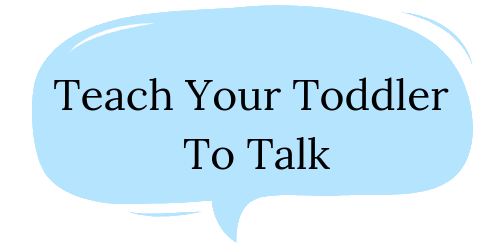I often hear assumptions about language development that aren’t true. Today, I am debunking the 5 most common myths about late talkers and setting the record straight.
MYTH 1: LATE TALKERS ALWAYS CATCH UP ON THEIR OWN
If your child is late to start talking, it’s common for friends, family members, and even your family doctor to tell you not to worry and that “he’ll talk when he’s ready”, or “my friend’s son’s second cousin didn’t talk until he was 4 and now he won’t stop talking”. While this advice is well intentioned, it often can lead people to delay seeing a speech-language pathologist because they assume that the child will just start talking on their own. Many late talkers do catch up on their own, but many do not. For those children who need some extra help, we know that early intervention is the most beneficial, so it’s important to know those language milestones and determine if your child’s development is on track.
For more information, check out the post: Is your Child a Late Talker?
MYTH 2: MY CHILD IS A LATE TALKER BECAUSE THEY ARE LEARNING 2 LANGUAGES
It is very common for people to think that their child’s language is behind because they are exposed to two languages. What we know from the research is that children exposed to two languages might say their first words slightly later than children learning just one language, but it is still within the normal age range (8-15 months). Also, they will likely say some words in one language and some words in another, but when you add those words together, they should still be hitting their milestones. At 18 months, children are typically using about 50 words and starting to put 2 words together. By 2 years, they are saying 200-300 words and using lots of two words phrases.
Check out this article for more information: Does Bilingualism Cause Language Delay?
MYTH 3: MY SON ISN’T TALKING BECAUSE BOYS DEVELOP LATER THAN GIRLS
It’s true that overall, boys tend to talk a little later than girls, however, they are still within the normal range of development. That means that girls are typically on the higher end of normal, while boys on the lower end. So if your son is way behind their milestones, it is recommended to see a speech-language pathologist, as they may benefit from therapy to address this delay.
MYTH 4: TV IS A GREAT WAY TO TEACH TODDLERS TO TALK
Lots of parents that I work with report that the TV is always on at home, and say that their toddler spends many hours each day in front of a screen. What we are learning from research, is that screen time can negatively impact a child’s development in several ways, including their ability to learn language. Children are not able to understand what they are seeing on a screen at such a young age. They learn better through real life interactions and play with adults. The American Academy of Paediatrics recommends no screen time for children under 2, and a maximum of 1 hour/day of high quality programming for children age 2-5.
For more information on screen time, check this out: How Much Screen Time for Your Late Talker?
MYTH 5: YOU SHOULDN’T USE BABY TALK WITH TODDLERS
“Baby talk” is also called motherese or infant directed speech. This is when parents or caregivers spontaneously speak to their babies in a high pitched voice, consisting of slower speech with simpler phrases and repetition. Studies have shown that babies prefer this type of speech, and it may help them focus on the speech, understand words, and have a positive effect on their cognitive and emotional development. As babies grow into toddlers, you may alter the way you talk to your child, but toddlers can still benefit from slowing down your speech and exaggerating and repeating key words.
WANT TO HELP YOUR TODDLER TALK?
REFERENCES:
Lowry, L. (n.d.). Fact or Fiction? The Top 10 Assumptions about Early Speech and Language Development. Retrieved from http://www.hanen.org/Helpful-Info/Articles/Fact-or-fiction–The-Top-10-Assumptions-About-Earl.aspx
Saint-Georges, C., Chetouani, M., Cassel, R., Apicella, F., Mahdhaoui, A., Muratori, F., … Cohen, D. (2013). Motherese in Interaction: At the Cross-Road of Emotion and Cognition? (A Systematic Review). PLoS ONE, 8(10). doi: 10.1371/journal.pone.0078103


